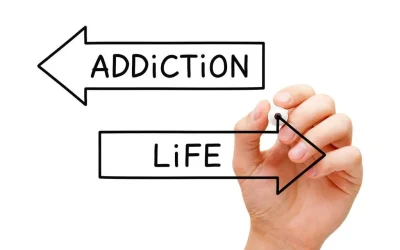Content
- Esteem threat, self-regulatory breakdown, and emotional distress as factors in self-defeating behavior
- Additional Facts About Alcoholism
- Similarities Between Alcoholism and Narcissism
- Alcohol Addiction and Personality Disorders
- Comparative fit indexes in structural models
- Where to Find a Support System
They might say all alcoholics lie, that their addiction causes them to emotionally shut-off and they can’t be blamed for their drinking because it is an addiction. NuView Treatment Center is a top leading Los Angeles outpatient alcohol and drug rehab program. Our goal is to inspire hope and create lasting change while you or a loved one are coping with the challenges of mental health and addiction – one client at a time. An individual may be an alcoholic narcissist, someone who has NPD and then develops alcohol addiction and dependence. But their alcoholic personality leads them to act in ways that are similar to a narcissist.
One study investigated alcohol and narcissism in college students. The researchers found that grandiose narcissism, i.e., overt narcissism, was a positive predictor of alcohol consumption. People in this group were also less likely to see their alcohol use as a problem. Another alcoholic personality revolves around the inability to control drinking. The individual would show physical and psychological urges or cravings to drink.
Esteem threat, self-regulatory breakdown, and emotional distress as factors in self-defeating behavior
We may have hurt the ones we love, do things we are ashamed of, and caused harm to ourselves. Although you may have gotten substance narcissism and alcoholism abuse treatment and are… When working with highly trained and compassionate professionals, alcoholics receive holistic treatment.

In the brain, alcohol increases the effects of neurotransmitters that slow the body down while also decreasing the effects of neurotransmitters that speed the body up. The combined effect results in many of the intoxicating effects of alcohol. Both conditions may influence the other, and some symptoms or behaviors of each condition can overlap.
Additional Facts About Alcoholism
Being a narcissist is not the same thing as having a narcissistic personality disorder (NPD), but it can impact a person’s behavior and how they experience alcohol addiction. A co-occurring disorder is diagnosed when a person has a substance use disorder along with a mental health disorder. When someone has alcoholism and narcissistic personality disorder, they may be particularly vulnerable to the negative consequences of both. Devaluing or diminishing the worth of others is how many individuals destroy their relationships, such as by drinking beyond limits at inappropriate times and letting others down. Impaired control over drinking (IC) reflects consuming alcohol beyond predetermined limits. Our results show that while grandiose-fantasy (i.e., desire for special recognition) was negatively linked to IC, devaluing was positively linked to IC.
Do alcoholics lack empathy?
Conclusions: Empathy (both cognitive and affective) is significantly reduced in alcohol dependence.
Someone who’s narcissistic might be self-absorbed and have an inflated sense of self-importance. By building support from family and friends, you are more likely to stay on course with your dual treatment plan and avoid the stress that can make AUD and NPD worse. By educating yourself, you can also educate them about what AUD and NPD are about. You can take them with you to your next appointment to talk with your healthcare provider. By way of example, a person must meet five of nine possible criteria for NPD to be diagnosed, ranging from grandiosity to a lack of empathy. Similarly, using alcohol doesn’t mean a person with NPD has AUD, even if there have been incidents of extreme intoxication.
Similarities Between Alcoholism and Narcissism
Cognitive–Behavioral Therapy can take place one-on-one with a therapist or in small groups. This form of therapy is focused on identifying the feelings and situations (called “cues”) that lead to heavy drinking (or grandiose thinking) and managing stress that can lead to relapse. At the core of most narcissistic personality traits and traits of alcoholism is a deep insecurity and low self-esteem that drives their self-destructive behaviors.
Historically, narcissism has been deemed excessive selfishness or self-admiration. The complete sonnets and poems of Shakespeare (Shakespeare, 1912) recanted the Greek story of Narcissus, who fell in love with his own reflection, while ignoring a chance for a real relationship. Psychoanalysts as early as Sigmund Freud (1914) described a developmental stage in children in which their egos lack concern for anyone else’s needs, which he referred to as primary narcissism. According to Freud, individuals severely traumatized during this developmental period never leave the ego-driven state, even as adults, leaving them incapable of caring for others.
Alcohol Addiction and Personality Disorders
Arguing with someone who is drunk or a narcissist will not help. These individuals will debate, argue, distract, or back you into a corner, due to the way alcohol affects them. An alcoholic can exhibit symptoms of Narcissistic Personality Disorder (NPD), but usually not enough to be diagnosed.

With any mental health condition, the outlook is almost invariably better if you are treated than not treated. The treatment of NPD and AUD should ideally be delivered simultaneously, especially if there https://ecosoberhouse.com/article/what-is-the-life-expectancy-of-an-alcoholic/ is severe addiction or depression. With that said, there are challenges to delivering appropriate care for the dual diagnosis. A person with alcoholic selfishness is very much like a narcissist.






